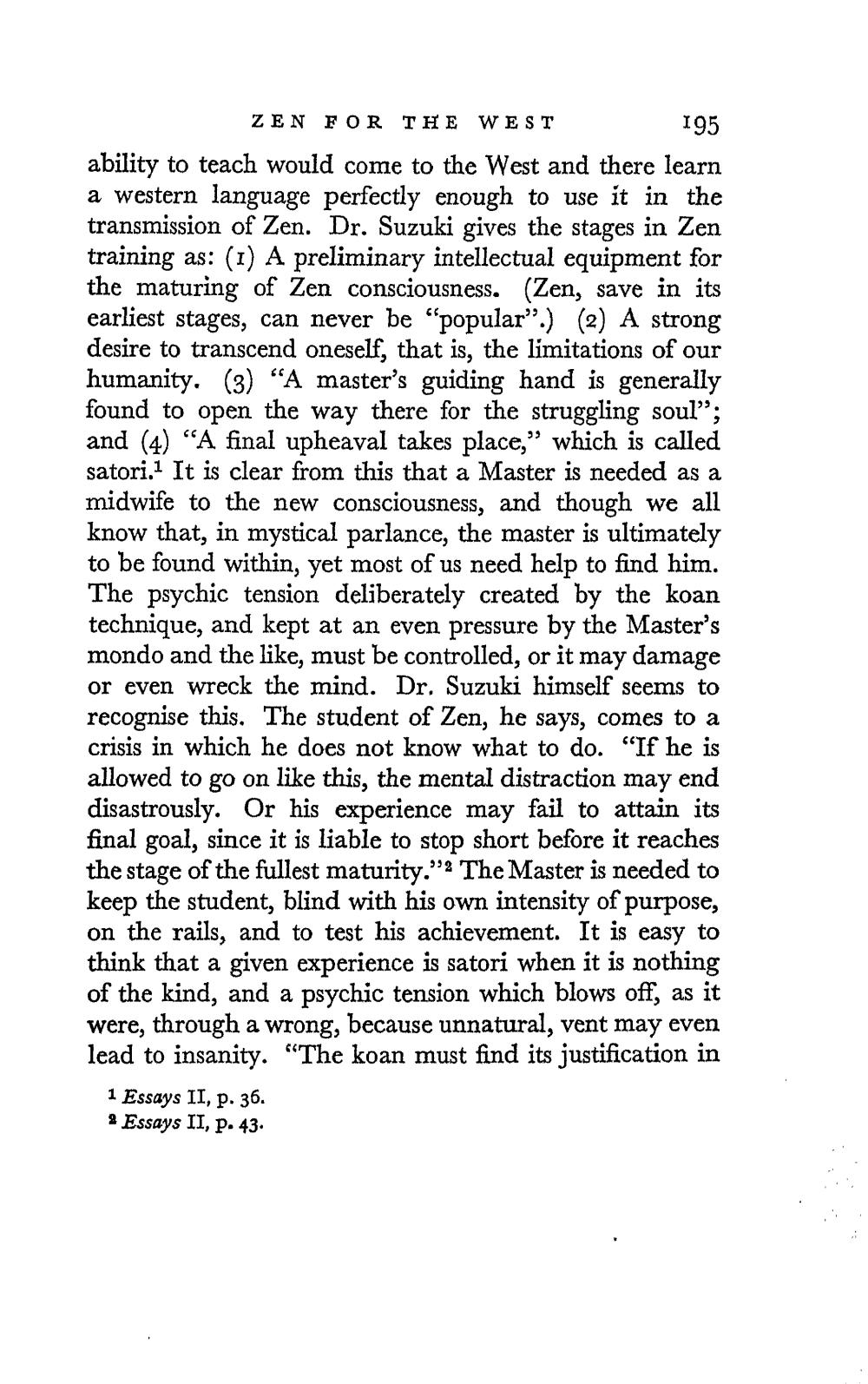________________
ZEN FOR THE WEST
195
ability to teach would come to the West and there learn a western language perfectly enough to use it in the transmission of Zen. Dr. Suzuki gives the stages in Zen training as: (1) A preliminary intellectual equipment for the maturing of Zen consciousness. (Zen, save in its earliest stages, can never be "popular".) (2) A strong desire to transcend oneself, that is, the limitations of our humanity. (3) "A master's guiding hand is generally found to open the way there for the struggling soul"; and (4) "A final upheaval takes place," which is called satori.1 It is clear from this that a Master is needed as a midwife to the new consciousness, and though we all know that, in mystical parlance, the master is ultimately to be found within, yet most of us need help to find him. The psychic tension deliberately created by the koan technique, and kept at an even pressure by the Master's mondo and the like, must be controlled, or it may damage or even wreck the mind. Dr. Suzuki himself seems to recognise this. The student of Zen, he says, comes to a crisis in which he does not know what to do. "If he is allowed to go on like this, the mental distraction may end disastrously. Or his experience may fail to attain its final goal, since it is liable to stop short before it reaches the stage of the fullest maturity." The Master is needed to keep the student, blind with his own intensity of purpose, on the rails, and to test his achievement. It is easy to think that a given experience is satori when it is nothing of the kind, and a psychic tension which blows off, as it were, through a wrong, because unnatural, vent may even lead to insanity. "The koan must find its justification in
1 Essays II, p. 36.
2 Essays II, p. 43.




